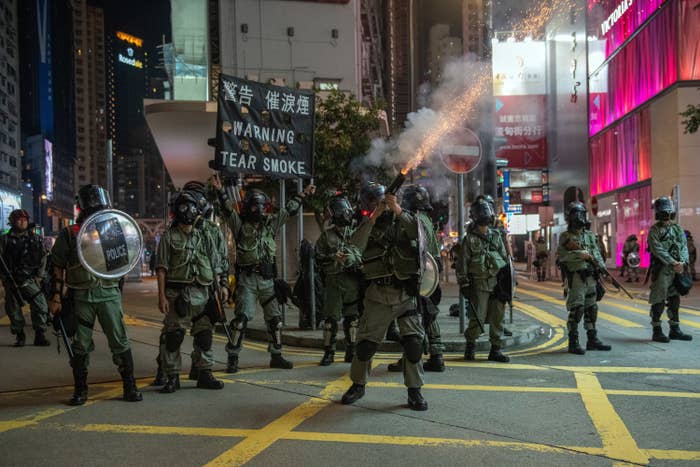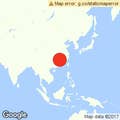
HONG KONG — Following months of international outcry against Hong Kong police use of tear gas against protesters, US lawmakers introduced a bill Wednesday that would halt shipments of crowd-control equipment to the city.
Police have said in press conferences that by early August they had fired 1,800 rounds of tear gas at the pro-democracy protesters, who have been in the streets since June. It has since climbed much higher as the protests continue to intensify. Amnesty International and the United Nations High Commissioner for Human Rights have criticized the police for its use of crowd-control equipment on protesters. Reports and videos show police have fired tear gas in subway stations, in residential areas, and directly at protesters.
At least some of the crowd-control equipment currently in the hands of the Hong Kong Police Force has come from US companies that have obtained export licenses from the Department of Commerce, including Nonlethal Technologies, a small company based in western Pennsylvania.
“I am deeply concerned that American-made police equipment is being used to violently crack down on peaceful protesters in Hong Kong,” Rep. Jim McGovern, a Massachusetts Democrat and a sponsor of the bill, said in a press release. Reps. Chris Smith and Ro Khanna, a Republican and Democrat, respectively, are also cosponsors.
A recent BuzzFeed News investigation found that Nonlethal Technologies relies on low-wage workers in Pennsylvania to produce the tear gas it sells in sometimes unsafe conditions. Workers described working with chemicals that burned their skin and making the product largely in metal shipping containers. Federal records showed multiple fines for mishandling hazardous chemicals.
A previous shipment of grenades to Hong Kong came from the United Kingdom–based company Chemring in 2014. The UK decided to stop export licenses for crowd-control equipment to Hong Kong in June following reports of excessive force by police against protesters until it addressed human rights concerns.
Hong Kong has been embroiled in large-scale protests for over three months now, beginning when millions marched against a proposed bill that would allow extradition to mainland China. That has since set off a broader protest movement against China’s encroachment on the semiautonomous region and has widened into protesters seeking five demands — including an independent inquiry into police violence and universal suffrage.
Last week, Hong Kong’s chief executive, Carrie Lam, said she planned to fully withdraw the extradition bill — one of the five demands — though the move has done little to soften tensions in the city. More protests are scheduled for this weekend.

